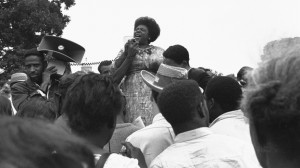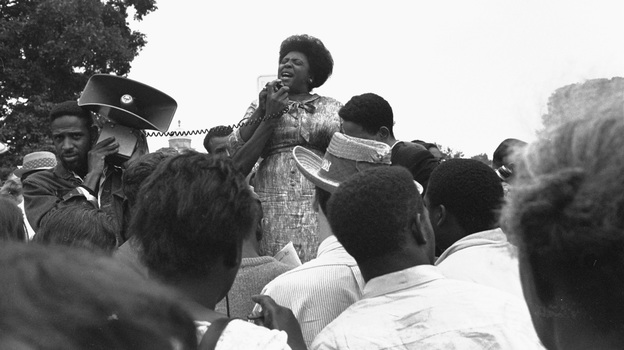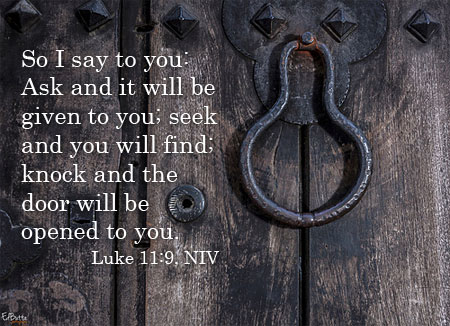 This week, thousands gather in Washington D.C. to commemorate the March on Washington 50th Anniversary (#MOW50). While many associate the march with Dr. Martin Luther King, Jr.’s iconic “I Have a Dream” speech, this event was a product of a broader justice movement executed by a large network of civil rights activists, including Bayard Rustin, Ella Baker, Septima Clark and a litany of veterans of hope. Their combined efforts yielded significant legal, political, and cultural changes that represent a monumental democratic achievement.
This week, thousands gather in Washington D.C. to commemorate the March on Washington 50th Anniversary (#MOW50). While many associate the march with Dr. Martin Luther King, Jr.’s iconic “I Have a Dream” speech, this event was a product of a broader justice movement executed by a large network of civil rights activists, including Bayard Rustin, Ella Baker, Septima Clark and a litany of veterans of hope. Their combined efforts yielded significant legal, political, and cultural changes that represent a monumental democratic achievement.
This anniversary arrives at a crucial moment in U.S. national life. The fact that a black person is POTUS on this 50th anniversary seems miraculous to those who remember pre-civil rights America or lived in the shadows of persistent racial discrimination in subsequent decades. Still, racial conflicts surrounding Trayvon Martin’s death and George Zimmerman’s acquittal dominated U.S. headlines this summer. The SCOTUS decision to overturn key provisions of the Voting Rights Act of 1965 illustrated the tenuous nature of civil right’s most important achievements. These conflicts exposed profound racial disagreements and prompted vitriolic exchanges between opponents. MOW50, against this backdrop, serves as both a rousing celebration of victories already won and a sobering reminder that racial justice is still a work in progress.
MOW50 and the Year of Faith converge at the intersection of justice and belief to reveal the necessity of an active, ardent, and apostolic commitment to the pursuit of racial justice for the New Evangelization. As Catholics, we are compelled by our passion for the dignity of human life, the call to solidarity, the commitment to the preferential option for the poor, and the priority of the common good to dedicate ourselves explicitly to the cause of racial justice. Yet, as Fr. Bryan Massingale argues in his monograph Racial Justice and the Catholic Church, our Church still struggles to fully elaborate an adequate moral response to racism. Indeed, the racially-charged events of 2013 reveal, “how far we are from achieving King’s dream.” The New Evangelization provides a chance for the Church to raise the bar–both corporately and personally–on this cause. I turn to the life and witness of Fannie Lou Hamer, a civil rights champion honored with many others this week, to offer a concrete illustration of this intersection.
If the civil rights struggle was largely a religious movement, then Fannie Lou Hamer was its evangelist. Hamer, who served as field secretary for the Student Nonviolent Coordinating Committee (SNCC), empowered black voters through civic education and voter registration drives in the segregated south. Along with others in the movement, Hamer faced violence and imprisonment for her efforts. Once, after she was jailed and brutally beaten, the jailer’s wife and daughter secretly gave her assistance. Moved by their concern, she reached out to her captives from the confines of her jail cell to invite their conversion:
“And I told them, ‘Y’all is nice. You must be Christian people.’ The jailer’s wife told me that she tried to live a Christian life. And I told her I would like for her to read two scriptures in the Bible…I tol’er to read the 26th Chapter of Proverbs and the 26th Verse [‘Whose hatred is covered by deceit, his wickedness shall be showed before the whole congregation’]. She taken it down on a paper. And then I told her to read the [17th] Chapter of Acts and the 26th Verse [‘Hath made of one blood all nations of men for to dwell on all the face of the earth’]. And she taken that down. ”[1]
Hamer, in the midst of her suffering, refused to vilify or degrade her opponents. Instead, she reached beyond her jail cell to enter relationship with those against her. She did not seek reconciliation by ignoring conflict. She did not manipulate her message for a false peace. Rather, she strived to convert them through respect and authenticity. Her fearless love is reminiscent of Saint Paul’s imprisonment for the Gospel:
“I want you to know, beloved, that what has happened to me has actually helped to spread the Gospel, so that is has become known throughout the whole imperial guard and to everyone else that my imprisonment is for Christ; and most of the brothers and sisters, having been made confident in the Lord by my imprisonment, dare to speak the word with greater boldness and without fear.” (Philippians 1:12-14, NRSV)
Fortified by belief in God’s love for her and the cause of civil rights, Hamer’s commitment to speaking truth to power transcended her own suffering. Hamer evangelized boldly by demanding that the U.S. live up to its national vocation of justice and equality.
Hamer’s prophetic evangelization offers three challenges to U.S. Catholics on the occasion of MOW50 and beyond. First, Hamer’s story reminds us that advocacy for racial justice is a central aspect of Christian discipleship. While racial understanding is an ongoing process and advocacy takes many different forms, this threat to human dignity necessitates a better response from the Church universal. Second, Hamer is a witness to the necessity of openness and charitable dialogue in the struggle for racial justice. Basic, simple, and humble conversation with those with whom we disagree can be overwhelming and intimidating, but it is necessary for cooperation and the pursuit of justice. Finally, Hamer’s witness challenges us in our own evangelical calling, to spread the Gospel to the ends of the earth, with any who will listen, and with those who may persecute us for its cultural incongruity. This facet of our faith means that our response to racism cannot be lukewarm: complacence has no place before injustice. The great commission is, indeed, counter-cultural, especially where we might be tempted to remain silent out of fear of causing offense or facing retribution. The call to evangelization and conscientization, however, is central to our Christian identity. We are called to fully commit ourselves to the cause of justice wherever human dignity is threatened.
[1] Barbara Dianne Savage, Your Spirits Walk Beside Us: The Politics of Black Religion (Cambridge and London: The Belknap Press of Harvard University Press, 2008), 240.




Trackbacks/Pingbacks